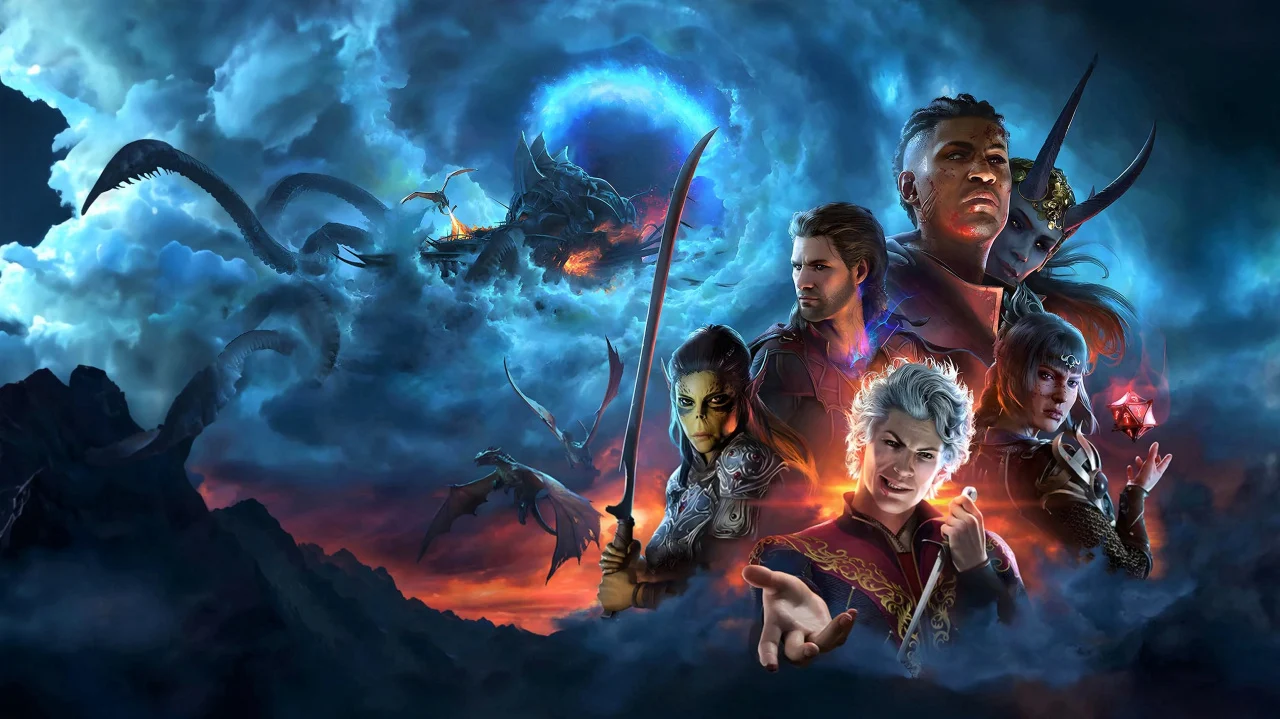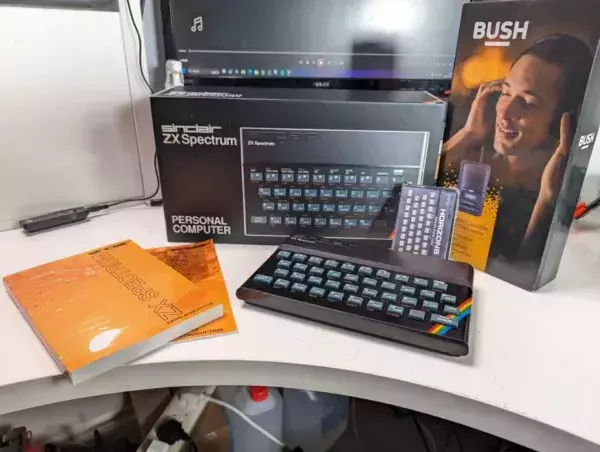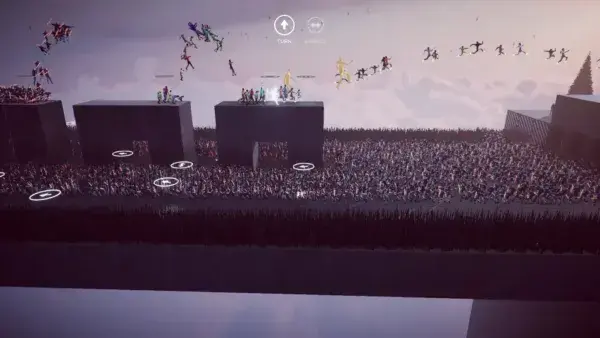
Not all early access games end up as revered as Baldur’s Gate 3 – so why do we take the risk? Vikki Blake has a few thoughts…
There are a lot of things about gaming that are tricky for outsiders to understand (just the term teabagging could take up an entire evening, let alone why I – uh, I mean other people – do it), but early access? Buying a game before it’s finished? Buying a game when you don’t even know for sure that it will be finished?
Yeah. Yeah, that one does sound awfully weird when you put it like that.
The appeal for developers is pretty obvious, of course. Development teams can get (mostly) objective eyes on their latest project – sometimes millions of them – and secure on-the-spot testing from the very community that’s going to put that game through its paces. That can mean anything from feeding back on control schemes and systems, stories and characters, to mods, stress tests, and endlessly breaking things with exploits and cheesing and trying to platform where no character has platformed before. It’s a fantastic way to get real-time testing done out in the wild, on fast and slow systems, and by fast and slow players, from the skilled pro to the sub-par apologist.
And it’s a canny funding stream, too, especially for indie teams. By asking for a little (or, as some may posit, a lot) for an early access (EA) game – the term now synonymous with alpha pre-“gold” builds – indies can not only gauge their game’s appeal before committing to a full development cycle and all the post-launch content that entails, but also use the funds generated by early access sales to reinvest in the game… Which is a pretty tantalising way to develop an art project, and one that’s almost unique to the games industry.
Still. Few of us would buy a book that didn’t have an ending, or see an incomplete film. We wouldn’t listen to a two-minute song that was, say, missing the chorus, let alone invest hours and hours listening to it on repeat. So, what is it about gaming that makes it the exception to the rule here? Why are early access games so popular not just with developers but players, too?
At its best, it means gamers can hop into their next favourite game months or even years before its polished iteration may see the light of day, contribute meaningfully to helping the team find and squish bugs, and perhaps even learn a little more about the complexities of game development along the way. Early access games, by their very nature, are often cheaper, too, which means players may be able to tap into a premium experience for a budget price.
And there’s something special about getting in on the ground floor, isn’t there? For instance, I spent a lot of time with an early build of (the excellent) Sons of the Forest, and the plethora of Kevin-flavoured memes that spawned from those early days were instantly relatable to anyone who’d spent time with the hapless, if eager to help, NPC. It felt like we’d learned along with the developers that if you gave our Kev instructions to get logs, he would get those logs any way he could, including by removing them from the fort you just spent five hours perfecting. Together, almost in real-time, the community worked out what to do – and what not to do – about the woman with the see-through leotard and three arms and legs. We were exploring collectively, even before the guide writers had managed to post their neat summations online… and somehow, that made our discoveries all the more rewarding.
And so, so many wonderful games have enjoyed – or are still enjoying – a formative early access period. Outlast Trials. Phasmophobia. Minecraft. The critically acclaimed Baldur’s Gate 3 sat in early access for the best part of three years, giving thousands of fans the opportunity to get involved early on, and giving Larian Studios reams of valuable data ahead of its polished “gold” release earlier this year. Players weren’t even put off by the fact that all the progress they clocked up during the EA period was lost when the full game was eventually released.
But even beyond the prospect of a progress wipe, it’s a risk, isn’t it? Especially if it’s an early access period with a premium price tag. Jump in early, and you may get the same kind of shared experience I had with Sons of the Forest… or you may get a buggy mess. Leave it too long to jump aboard the hype train, however, and you may miss out on the fun entirely.
No, not all games end up as revered as Baldur’s Gate 3 and no, not all early access offerings are created equal. Early access requires players to place a bet on a horse that may not even run, and just because a studio has some cool trailers and a couple of “roadmap” infographics doesn’t mean that the game will get developed beyond a bug-strewn prototype, let alone ever be fully realised.
How delightful it is, then, that in spite of those risks, whole communities of players will show up and put their money where their mouths are to support their favourite games and game makers.
There are a lot of things that frustrate me about gaming, but this? This isn’t one of them.
Vikki Blake has a column every week here at whynow Gaming. You can read her previous dispatch here.






5 Comments
I have to disagree with not having paid early access/WIP content outside of the gaming industry. Patreon for one has not only been home for game devs, but also many writers, musicians, artists (both for standalone pieces and long-running comics), film makers etc for quite a while now. Seeing any of these projects slowly come to life post by post is so cool! “Few” is a bit misleading because sure, most people would rather pay for a finished project, but there are still lots and lots of people who would pay to slowly see a passion project come to life.
I’ve got quite a few early access, and feel a better analogy to movies or a book is a TV series, although in these days of binge streaming maybe even that’s not quite right.
Games are episodic, even when they’re not released that way… Chapters between boss fights or set missions, and we usually play them in bursts like a TV series rather than all at once like a movie.
With that analogy it makes sense, we’re playing it looking forward to what the next ‘episode’ or ‘season’ may bring and hoping our favourite series don’t get cancelled along the way.
You can’t go watch a unfinished movie for 100+ hours, but I can enjoy unlimited hours in act 1 of BG3. Star Citizen is another good example its been in early access for like over a decade but you could spend a unlimited time enjoying what they have to show
Most of current “finished” games are worse than some in early access. Best examples are starfield, cyberpunk 2077, and worst of all diablo 4 because of the price. I don’t think any of those needs explanation. Half baked products sold for tons of money only cuz of studio behind them. If any indie dev or small studio would release such game people would destroy them and they would never sell anything under same name.
First of all, that comparison is a bit off, because if you’re comparing a game to a film/song/book then I’m sorry, but if you’re spending money on a game that you can complete in 2 hours (average film time) then maybe there’s something not alright with the buyer.
Second of all, pre “gold” builds… no, those do not exist UNLESS they are exclusively being released on PC. For Sony, Microsoft and Nintendo, games have to go through this extremely complex set of checks known as compliance. Those checks range from button layouts, to screen sizes and safe zones as well as stability. Otherwise Sony, Microsoft and Nintendo will turn around to the publisher/developer and simply say “No, you’re not releasing this until it’s fixed” which is why day 1 patches exist. Because companies can apply for certain wavers to certain checks depending on where they are in production, and it’s up to the main 3 giants to accept it or not. But there is a form of legality involved in those communications which I will not get involved in.
Steam on the other hand, it doesn’t care, it gets the money from games whether they’re trash/broken or whatever.
Also do realise that some bugs will be allowed, as few bugs aren’t comparable to the backlash of sweaty gamers complaining about a game being delayed especially in the current climate of internet backlash and cancel culture. And that’s because compliance is looking at specific bugs, so for example a crash would be something that isn’t accepted (and yes, some might slip past, and that can be due to the state of the system that you play on, meaning the amount of available space (you’d be surprised at how much that matters especially for Switch games), state of the console, even the specs on your PC, as QA can only check so many combinations of specs, but also not all crashes can be found, because not every tester plays in the same way, and for a game as big as BG3, it’s pretty much impossible to find all different reactions to every other reaction) but visual bugs are completely fine, slow loading times are completely fine (up to a certain threshold, and as long as the user can see that the game is running (that’s why we have those auto save icons on dark screens actually animate))
I guess what I’m trying to say is, don’t attack the studio who makes the games, attack the higher up powers that make up the rules.